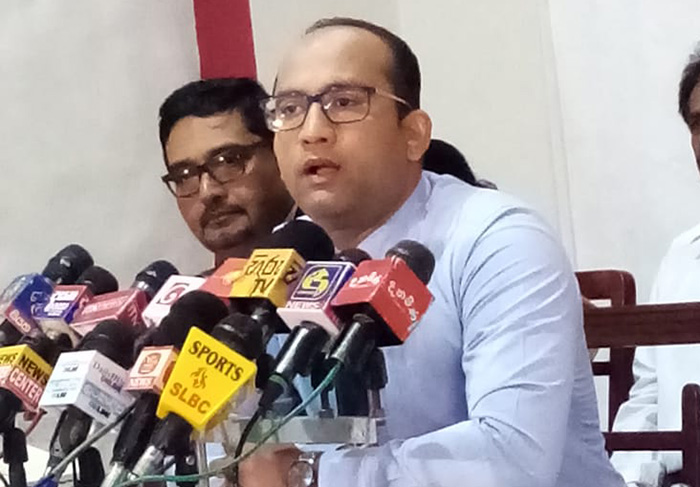Business
‘Revenue collecting PCs had only Rs. 40 billion for public service in 2021’

By Sanath Nanayakkare
There wouldn’t be a better time for major political parties to discuss and arrive at a consensus for abolishing the revenue-collecting provincial council system which hasn’t done anything more than just distributing government-sponsored welfare goods to the people, Pasanda Yapa Abeywardena, chief organiser of Lankalokaya and former provincial councilor said at a press conference in Colombo on January 19.
Pasanda who enjoys familial relationships with political higher-ups in the country while being the current chairman of Sathosa said that the President of Sri Lanka can travel across the island by helicopter in just one and a half hours which is only the size of Virginia in the United States, but has so many layers of governance including executive presidency, parliament, provincial councils, district secretariats, local government institutions etc.
“It is a known fact that provincial councils are mere training centres for the offspring of senior politicians and there is a demand in the country for cost-effective small government. In such a context, all political parties should have a dialogue in the next six months to abolish provincial councils, and strengthen the local government bodies through district development councils administered by the central government. Such a mechanism would reduce administrative layers while expanding the effective understanding of policies made by the government. Then the decisions made by the cabinet of ministers will easily flow to the ground level and the implementation process will be more dynamic. The President also has expressed similar views in this regard, he said.
“In the year 2021, revenue of provincial councils amounted to Rs. 331 billion while total expenditure was Rs. 316 billion, out of which Rs. 279 billion was spent on the payroll without having to bear the costs of provincial councilors. All in all, the provincial councils had only about Rs. 40 billion to spend on public services,” he said.
“In fact, I know from experience that nothing meaningful could be achieved through provincial councils other than merely being an institution of the central government that distributes chairs, mammoties etc., given by the government where provincial councilors claim to be the benefactors.”
“Provincial councils came to its end of term in April 2019 and five years have lapsed since the defunct of the system. Nevertheless, there is no public outcry to restore the system. PC system has never contributed to making any laws of the country or has never initiated a good programme on its own. So, we urge the political parties to engage in a meaningful discussion in the next six months before the country goes to presidential and parliamentary elections.”
He pointed out that the abolition of the PC system would help reduce the tax burden on the people, and that decision has to be taken well before PC elections are held.
Pasanda added that neither the people in the North of Sri Lanka or the government of India are interested in provincial councils anymore though the system was introduced by then government as a means of power decentralisation in Sri Lanka.”
“India is keen to have an equitable solution to the ethnic issue in Sri Lanka. However, I have reliable information that India doesn’t see provincial councils in the North and East would be an enabler in that quest. So, the abolition of provincial councils won’t trigger any geopolitical tensions with India,” he said.